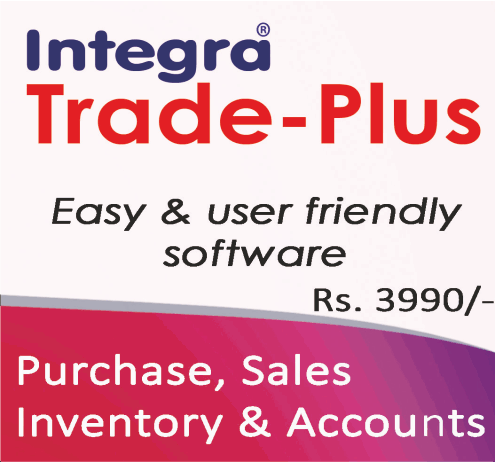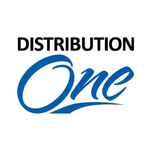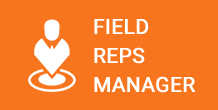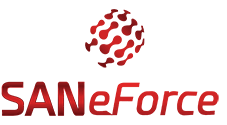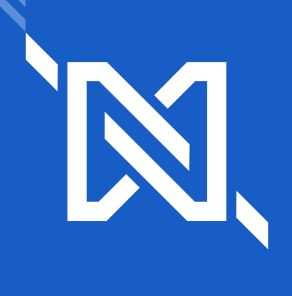What Is Distribution Management Software?
A complete business solution, distribution management software is made to help companies manage their distribution operations more efficiently and effectively. To increase total productivity and profitability, it integrates and automates a number of operations, including supply chain planning, inventory management, order monitoring, and sales analysis. Wholesalers, distributors, and retailers mostly utilize distribution management software to efficiently control the movement of commodities from the point of origin to the site of consumption.
It ensures precise and fast order fulfillment by giving real-time visibility and control over inventory levels, client orders, and delivery schedules. Inventory management is one of the main functions of distribution management software. Businesses can use it to manage product mix, keep an eye on stock movements, calculate ideal stocking levels, and precisely track inventory levels.
This lowers expenses associated with stock, avoids stockouts, and raises customer satisfaction. Furthermore, distribution management software provides sophisticated order management features that let companies track shipments, handle backorders, and automate order processing. This facilitates the efficient handling of a high volume of orders, guaranteeing clients receive accurate and timely deliveries.
Additionally, supply chain planning features are included in distribution management software to assist companies in streamlining the supply chain as a whole. Businesses may fulfill customer demand while reducing costs and increasing profitability by using elements like production planning, supply forecasting, and demand forecasting.
Additionally, distribution management software provides comprehensive reporting and sales analysis features. It gives companies useful information about industry trends, client purchasing trends, and sales performance, enabling them to make data-driven decisions and spur expansion. All things considered, distribution management software is an effective instrument that aids companies of all sizes in streamlining and improving their distribution processes.
Businesses can increase productivity, cut expenses, and boost profitability by automating procedures, giving real-time visibility and control, and supplying sophisticated planning and analysis features. Therefore, purchasing distribution management software is a smart decision for any company trying to streamline its distribution processes.
What Are The Recent Trends In Distribution Management Software?
Recent years have seen a significant evolution in distribution management software due to both changes in customer behavior and technological developments. To make an informed choice as a consumer, it's critical to comprehend the most recent developments in this market. These are some of the major developments influencing the market for distribution management software.
1. Cloud-Based Solutions: Distribution management is just one example of how cloud technology has completely changed how firms run. Nowadays, a lot of software providers provide cloud-based solutions that give more flexibility and scalability while doing away with the requirement for on-premise infrastructure.
2. Integration With Other Systems: To handle many facets of their operations, organizations are depending more and more on a variety of software systems in the current digital era. Because of this, integration has emerged as a major trend in distribution management software, with providers providing smooth connection with other programs like accounting, CRM, and inventory management.
3. Real-Time Analytics And Reporting: Businesses want tools to help them make sense of the vast amount of data that is available. With the use of sophisticated analytics and reporting features, distribution management software can now provide real-time insights into customer, inventory, and sales data.
4. Mobile Capabilities: The need for distribution management software that is mobile-friendly has grown as remote work and mobile technology have become more popular. In order to enable users to access vital information and features while on the road, vendors are now providing adaptable design and mobile apps.
5. Automation And Artificial Intelligence (AI): These two technologies are revolutionizing distribution management by increasing process efficiency and lowering the possibility of human error. Nowadays, a lot of software programs come with capabilities like route optimization, automated inventory management, and predictive analytics.
6. Transition To Subscription-Based Pricing: Distribution management software was mostly offered as a one-time purchase in the past. Subscription-based pricing models have become more popular, though, with vendors now providing monthly or yearly plans that may be more cost-effective for companies. To sum up, the market for distribution management software is always changing as new features and technologies are added to satisfy the demands of contemporary companies. To make sure you choose a software solution that meets your present and future needs, keep these trends in mind while you assess possible options.
Benefits Of Using Distribution Management Software
A complete solution created to maximize and simplify the several procedures involved in managing and delivering commodities and products is distribution management software (DMS). Because it enables effective supply chain management, it is a vital tool for every company that deals with inventory and delivery. Some advantages of utilizing distribution management software are listed below:
1. Better Inventory Management: By giving organizations real-time visibility into inventory levels, DMS enables them to precisely monitor stock levels, control product expiration dates, and prevent stockouts. Additionally, it helps companies to manage inventory levels, predict demand, and make well-informed purchase and stocking decisions.
2. Improved Order Fulfillment: Companies can automate the order fulfillment procedure, from order entry to shipment, by using DMS. Customer satisfaction rises as a result of fewer manual errors and quicker order processing.
3. Effective Warehouse Management: By automating procedures like receiving, put-away, and picking, distribution management software helps companies to maximize their warehouse operations. Faster turnaround times, better picking accuracy, and lower labor costs are the outcomes of this.
4. Streamlined Distribution: By automating activities like load optimization, transportation scheduling, and route planning, DMS assists companies in streamlining their distribution procedures. In addition to lowering distribution expenses, this guarantees on-time delivery and raises customer satisfaction.
5. Improved Analytics And Reporting: Accurate forecasting and decision-making are made possible by DMS, which gives companies access to real-time data on sales, orders, and inventory levels. Additionally, it offers comprehensive data and statistics on key performance indicators, empowering companies to pinpoint areas in need of development and make well-informed choices.
6. Integration With Other Systems: To facilitate a smooth data flow between departments, distribution management software can be coupled with other systems, including accounting and CRM software. In addition to saving time, this integration gets rid of human mistake and duplicate data.
Important Factors To Consider While Purchasing Distribution Management Software?
To make the best choice possible, there are a few crucial aspects to take into account when investing in distribution management software for your company. The following are important considerations while weighing your options:
1. Scalability: The software's scalability is among the most crucial aspects to take into account. The software should be able to handle the growing volume of orders, shipments, and inventory as your company expands without experiencing any performance problems. Additionally, it should be flexible enough to adjust to shifting business requirements and interact with other systems as required.
2. Inventory Management Capabilities: The software should have strong inventory management capabilities that let you keep an eye on stock movements and precisely track your inventory levels. To guarantee that you always have the appropriate amount of goods on hand, this includes features like automated stock replenishment, real-time inventory updates, and inventory forecasting.
3. Order Management: A thorough order management system that expedites the entire order process, from receiving orders to fulfilling and delivering them, should also be included in the program. To manage orders from several sources efficiently, look for features like order tracking, order processing automation, and multi-channel order management.
4. Warehouse Management: Warehouse layout optimization, inventory location tracking, and automated picking and packaging are just a few of the capabilities that your software should offer to help distribution organizations run their warehouses effectively.
5. Integration Capabilities: The software you select for distribution management should be able to interface with the systems you already have, like your accounting or CRM programs. This removes the need for human data entry, guarantees data accuracy, and streamlines your processes.
6. Reporting And Analytics: Through extensive reporting and analytical features, a quality distribution management software should give you useful information about your company. This will assist you in tracking important performance indicators, identifying areas for improvement, and making well-informed decisions.
7. User-Friendly Interface: Your staff should be able to easily browse the software and need less training thanks to its user-friendly interface. This will guarantee that the software is adopted and implemented within your company without hiccups.
8. Customer Support: The software vendor's degree of customer support and round-the-clock technical assistance should be taken into account. This will minimize downtime and business disruption by guaranteeing that any problems or inquiries are resolved promptly. You can make an informed choice that fits the unique requirements of your company and aids in streamlining your distribution procedures for greater productivity and expansion by bearing these considerations in mind when you buy distribution management software.
What Are The Key Features To Look For In Distribution Management Software?
A strong tool for helping companies effectively manage their supply chains and distribution operations is distribution management software. It's critical to take into account a number of aspects that can improve your distribution procedures and spur business expansion while searching for the best software for your company. The following are the main characteristics of distribution management software to look for:
1. Inventory Management: By allowing you to monitor and control your stock levels in real-time, this function helps you avoid overstocking, decrease stock-outs, and increase inventory accuracy.
2. Warehouse Management: By managing picking and packing procedures, streamlining storage, and accelerating order fulfillment, a strong warehouse management feature helps you maximize your warehouse operations.
3. Order Management: To guarantee precise and prompt deliveries to your clients, an advanced order management tool automates the complete order processing procedure, from order creation to shipment.
4. Route Optimization: With the aid of this tool, you may optimize delivery routes to lower delivery costs and times, boost driver productivity, and enhance customer happiness.
5. Supplier Management: A seamless distribution process depends on effective supplier management. Seek software that lets you track orders, handle supplier data, and communicate with suppliers more easily.
6. Reporting And Analytics: To assist you in identifying bottlenecks, tracking KPIs, and making data-driven decisions, the software should offer actionable insights through real-time reports and analytics.
7. Mobile Access: Mobile access to the software is essential given the growing trend of remote work and operations while on the road. For remote accessibility, look for software that has a responsive web interface or a mobile app.
8. Integration Capabilities: To remove data silos and optimize procedures, a complete distribution management software should easily link with your current systems, such as accounting software, ERP, or CRM.
9. Scalability: Seek software that can expand with your company and handle growth without requiring a system change. Long-term, this will save you time and money.
10. User-Friendly Design: Your staff should be able to easily understand and utilize the program without requiring a lot of training thanks to its intuitive and user-friendly design. To sum up, you can enhance your distribution procedures, raise productivity, and increase profitability by investing in distribution management software. To ensure the success of your distribution operations, make sure the software you choose includes the aforementioned essential qualities that are suited to the particular requirements of your company.
Why Do Businesses Need Distribution Management Software?
For companies involved in product distribution, distribution management software (DMS) is a vital instrument for effectively managing their supply chain and guaranteeing the prompt and economical delivery of items to clients. DMS gives businesses a single platform to handle every aspect of their distribution operation, including order processing, inventory control, tracking deliveries, and invoicing.
In addition to streamlining processes, this software aids companies in improving decision-making and maintaining their competitiveness in the quick-paced market of today. Above all, DMS gives businesses full access into inventory levels, logistics, and client demand, which helps them improve their supply chain. Businesses can reduce the risk of overstocking or stockouts by effectively forecasting demand and adjusting their inventory levels in response to real-time updates and data analysis.
This lowers expenses related to excess inventory or lost sales opportunities and increases the overall efficiency of the supply chain. Businesses may also manage their connections with suppliers and customers more effectively thanks to DMS. DMS guarantees prompt and accurate communication between all stakeholders, improving the entire customer experience, by automating and optimizing a number of procedures, including purchase orders, invoicing, and payment tracking.
Additionally, DMS offers sophisticated analytics and reporting features that let companies monitor and examine key performance indicators (KPIs) including inventory turnover, delivery timeframes, and order fulfillment rates. These insights enable companies to keep ahead of the competition, enhance their distribution procedures, and pinpoint areas for improvement through data-driven decision-making.
Furthermore, DMS provides strong monitoring and traceability capabilities that let companies track the flow of goods in real time from their warehouse to the final consumer. In addition to increasing delivery accuracy, this aids companies in meeting industry rules and consumer requests for openness.
Last but not least, DMS enables companies to automate a number of manual processes, including inventory tracking and data entry, freeing up important time and resources that can be used for other crucial business functions. This guarantees data correctness, reduces the possibility of error, and boosts efficiency.
How Much Time Is Required To Implement Distribution Management Software?
The complexity of the distribution network, the size of the company, and the level of customization needed all affect how long it takes to establish distribution management software. A distribution management solution's full implementation can take a few weeks to several months on average.
Gathering requirements and data from several departments, including sales, inventory, and accounting, is usually the first step in the implementation process. This step aids in comprehending the particular requirements and difficulties of the company's distribution operations and pinpoints areas that stand to gain from automation. The software must then be set up and tailored to the particular requirements and procedures of the company.
This entails establishing roles and permissions, establishing procedures, and interacting with pre-existing systems like CRM and ERP. Testing and training are essential phases in the implementation process after the program has been configured. While training helps users comprehend the capabilities of the system and how to utilize it efficiently, testing helps guarantee that the software is operating correctly and satisfies all business needs.
It is crucial to remember that any delays or difficulties that arise during the process may have an effect on the implementation schedule. To reduce any potential obstacles, it is crucial to have a committed implementation team and good stakeholder communication.
What Is The Level Of Customization Available In Distribution Management Software?
Any company trying to effectively manage its supply chain and distribution activities needs distribution management software. The degree of customisation offered is a crucial consideration when deciding which software to purchase. The software's efficacy and suitability for your particular business requirements might be significantly impacted by customization.
Depending on the provider and the particular product, there might be significant differences in the degree of customization offered by distribution management software. To satisfy their customers' needs, the majority of software solutions do, however, allow for some degree of customisation. Fundamentally, distribution management software lets users alter and set up a number of parameters, including reporting choices, user roles and permissions, and system integration.
This enables companies to customize the software to fit their own workflows and procedures, increasing its usability and efficiency. Some distribution management software companies provide more customization possibilities than these basic ones. To satisfy the particular needs of the company, this may involve the ability to design custom fields, workflows, and even modules.
For companies with particular or complicated demands, these adaptations can assist improve data management and streamline procedures. It is crucial to remember that although customizing has its advantages, it may also be an expensive and time-consuming procedure. Therefore, before spending money on a software solution, it is imperative that firms carefully evaluate their demands and ascertain the degree of customization required.
Future scalability is another crucial factor to take into account when evaluating the degree of customisation in distribution management software. Your software requirements may alter as your company expands and changes. As a result, choosing a software program that allows for a great deal of customisation is essential in order to handle any future requirements and adjustments.
Which Industries Can Benefit The Most From Distribution Management Software?
By simplifying and increasing the effectiveness of their supply chain and distribution procedures, distribution management software can significantly help a variety of sectors. This robust solution is intended to assist in the efficient and well-organized management of the complete distribution process, from purchase to delivery. Let's examine a few sectors that stand to gain the most from the use of distribution management software:
1. Retail: Maintaining client satisfaction for retail organizations depends on controlling inventory levels and making sure that products are delivered on time. Retailers can track shipments, keep an eye on inventory levels, and make more precise projections with distribution management software, which improves inventory control and lowers expenses.
2. Manufacturing: The timely supply of raw materials and completed commodities in the manufacturing sector depends on efficient distribution management. Manufacturers can monitor their manufacturing lines, control inventory levels, and optimize scheduling with distribution management software to guarantee prompt and effective delivery.
3. Logistics And Transportation: By simplifying shipment planning and execution, distribution management software may help logistics and transportation organizations. Real-time cargo tracking, effective route planning, and enhanced communication amongst stakeholders are all made possible by this program, which leads to quicker and more effective delivery.
4. Wholesale And Distribution: Because wholesalers and distributors work with a lot of suppliers and inventories, effective management is essential to their success. They may ensure on-time delivery and improved inventory control by using distribution management software to track inventory levels, handle orders, and keep an eye on shipments.
5. E-commerce: To complete consumer orders, the e-commerce sector mostly depends on supply chain and distribution procedures. Online retailers may guarantee a seamless and prompt e-commerce experience for their customers by using distribution management software to assist them manage orders, inventory levels, and delivery scheduling.
Conclusion
To sum up, distribution management software provides a complete solution that helps companies efficiently and successfully manage their distribution processes. This software streamlines and organizes the distribution process, from order processing and inventory management to supply chain visibility and logistics. Businesses may select the best distribution management software that fits their unique requirements and budget by taking into account crucial elements like features, pricing, integrations, and customer support.
To make sure the software can adjust to the evolving needs of the company, it is also essential to assess its scalability and flexibility. Additionally, performing a comprehensive software demo or trial can yield important information about the software's usability and functioning. Before making a final choice, don't forget to take into account the company's reputation, client testimonials, and continuous support and updates.
Businesses may boost production, cut expenses, and increase efficiency with the correct distribution management software. To advance your distribution procedures, make sure to spend money on dependable, feature-rich, and intuitive software.

